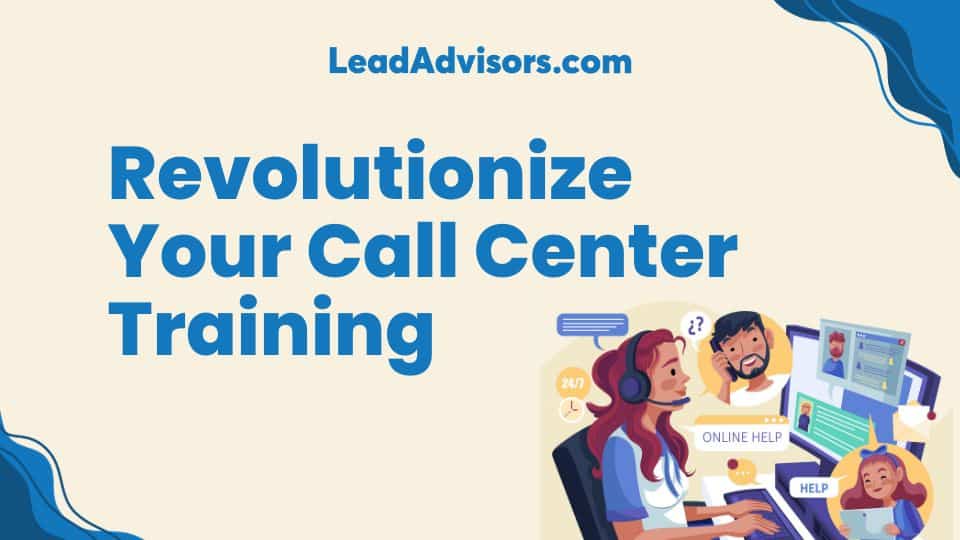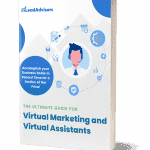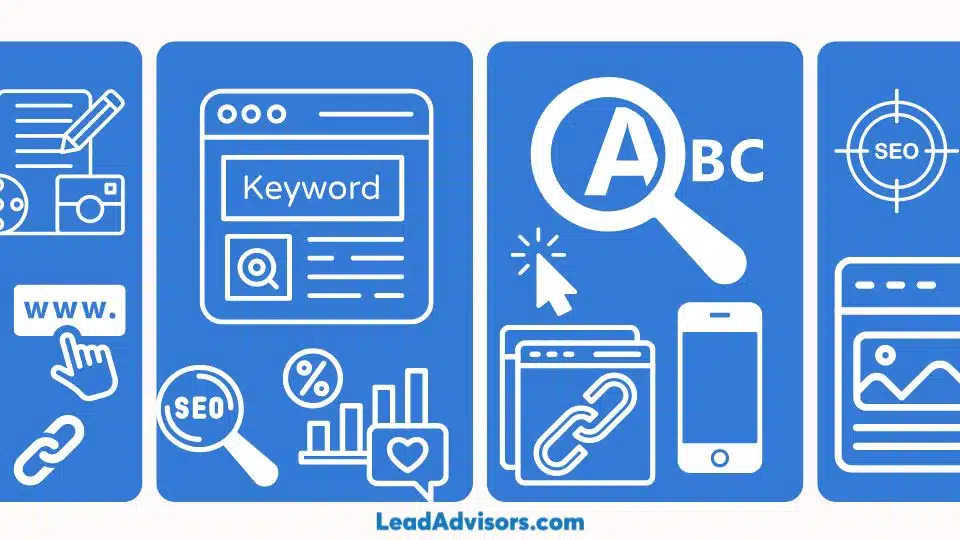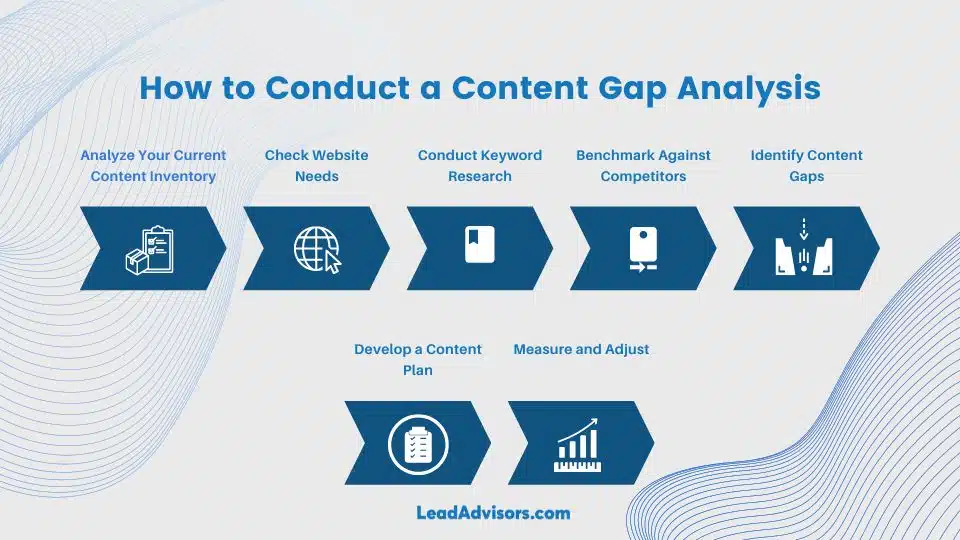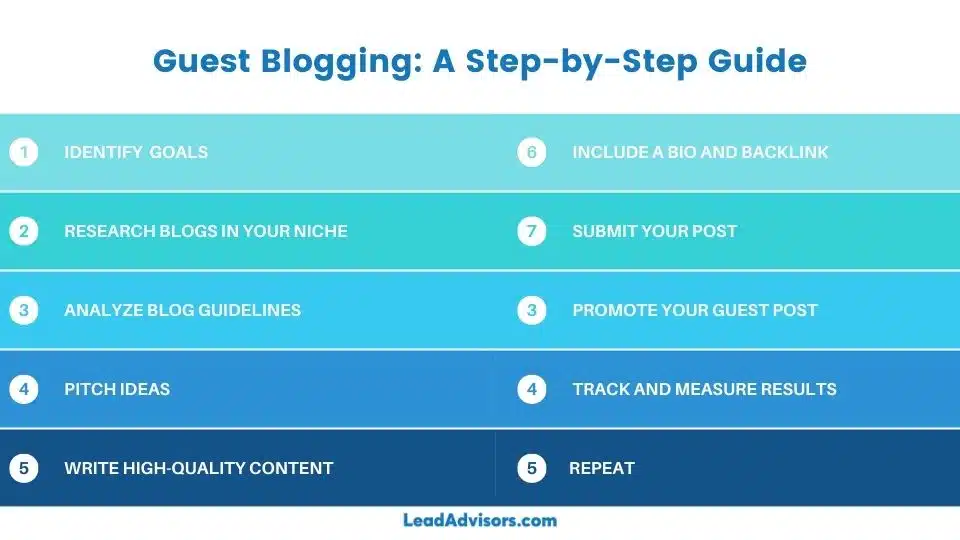 This guide explores the latest techniques in call center training, from leveraging technology and gamification to collaborative learning and performance monitoring. By putting these strategies, businesses can significantly boost agent performance and deliver a positive customer experience.
You May Also Like: Philippines Call Centers: Everything You Need to Know
This guide explores the latest techniques in call center training, from leveraging technology and gamification to collaborative learning and performance monitoring. By putting these strategies, businesses can significantly boost agent performance and deliver a positive customer experience.
You May Also Like: Philippines Call Centers: Everything You Need to Know
The ROI of Call Center Training and eLearning
 Measuring the return on investment (ROI) of call center training courses and initiatives provides data to demonstrate value and justify budgets. There are both quantifiable and qualitative returns on call center training programs.
Accordingly, quantitative ROI examines reductions in costs and improvements in productivity metrics. Well-trained agents have a higher first-call resolution, shorter handle times, and fewer transfers/escalations. This leads to direct savings versus repeat calls or additional labor to research cases.
Training also reduces employee turnover, lowering costs of recurrent hiring and onboarding. Qualitative ROI comes from enhanced customer satisfaction and loyalty. Agents resolve issues quickly.
After all, satisfied customers are more likely to remain long-term, purchase additional products or services, and recommend the business through positive word-of-mouth.
Elearning provides additional ROI advantages over traditional classroom formats. It eliminates travel expenses while scaling more learners at once. Content is reusable, updating as needed versus constantly recreating sessions. Analytics quantify usage, knowledge retention, and impact on performance metrics.
A European telco slashed attrition by 25% after migrating online training, recouping their eLearning investment in 6 months.
Proper data collection and analysis are needed to communicate training ROI to stakeholders authentically. However, the potential returns justify ongoing investment in changing call center talent.
Read More: How to Manage a 200-Seat Call Center
Measuring the return on investment (ROI) of call center training courses and initiatives provides data to demonstrate value and justify budgets. There are both quantifiable and qualitative returns on call center training programs.
Accordingly, quantitative ROI examines reductions in costs and improvements in productivity metrics. Well-trained agents have a higher first-call resolution, shorter handle times, and fewer transfers/escalations. This leads to direct savings versus repeat calls or additional labor to research cases.
Training also reduces employee turnover, lowering costs of recurrent hiring and onboarding. Qualitative ROI comes from enhanced customer satisfaction and loyalty. Agents resolve issues quickly.
After all, satisfied customers are more likely to remain long-term, purchase additional products or services, and recommend the business through positive word-of-mouth.
Elearning provides additional ROI advantages over traditional classroom formats. It eliminates travel expenses while scaling more learners at once. Content is reusable, updating as needed versus constantly recreating sessions. Analytics quantify usage, knowledge retention, and impact on performance metrics.
A European telco slashed attrition by 25% after migrating online training, recouping their eLearning investment in 6 months.
Proper data collection and analysis are needed to communicate training ROI to stakeholders authentically. However, the potential returns justify ongoing investment in changing call center talent.
Read More: How to Manage a 200-Seat Call Center
10 Tips for Your Call Center Training Program to Exceed Customer Expectations
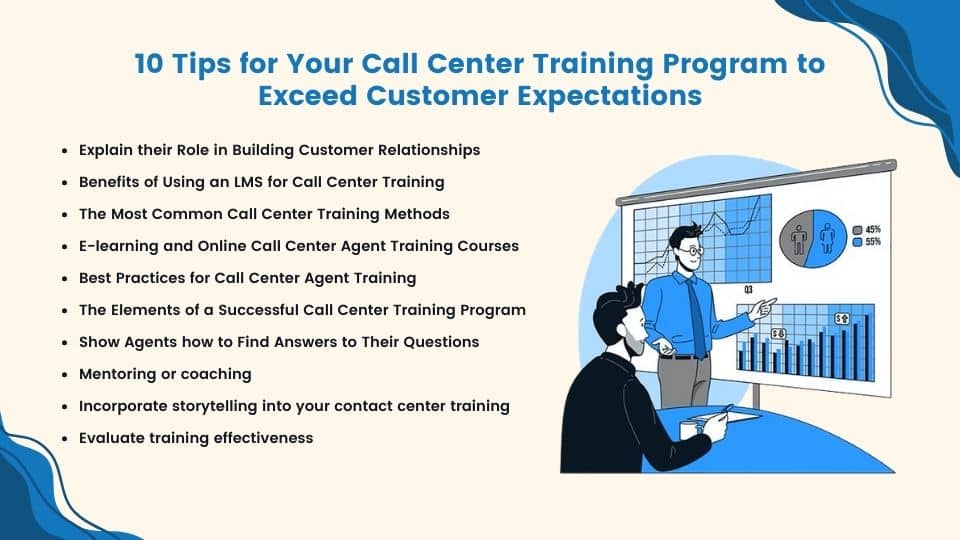
Explain their Role in Building Customer Relationships
Ensure agents understand the importance of each call and how to build rapport. They should be taught communication techniques like using the customer’s name, addressing concerns empathetically, finding common ground to connect, and concluding positively.Benefits of Using an LMS for Call Center Training
Learning management systems (LMS) allow flexible, accessible training on any device. Agents can resume incomplete modules from any location, and the learning management system also tracks individual progress. Admins gain visibility into what’s working and what needs adjusting.The Most Common Call Center Training Methods
Cover onboarding, coaching, simulations, virtual/ classroom training, and more. Variety center training material is key to engaging multiple learning styles. Onboarding socializes new hires while simulations replicate real scenarios: classroom and virtual combine to maximize tools while minimizing travel.E-learning and Online Call Center Agent Training Courses
Self-paced e-learning aids understanding and fosters independent learning. Bite-sized microlearning and multimedia like videos and games keep trainees engaged. Data captures usage to tailor future content. Also, set aside weekly or monthly for role-playing, product reviews, and policy changes. Refresher training ensures an understanding of best practices.Best Practices for Call Center Agent Training
Include these tips: small group sizes (no more than ten people), hands-on application of concepts, frequent comprehension assessment, and engaging delivery with interaction and visual aids. Use visuals, scenarios, and varied formats (videos or slides) to keep learners interested. Incorporate interactive elements like polls and materials in easy-to-digest sections.The Elements of a Successful Call Center Training Program
Onboarding, soft skills, systems, knowledge management products/services, customer service skills, communication. Build a knowledge base through comprehensive yet modularized lessons.Show Agents how to Find Answers to Their Questions
Provide knowledge bases and quick reference guides for common issues to avoid long call times. Encourage independent problem-solving and confidence on calls.Mentoring or coaching
Pair experienced agents as mentors to less experienced ones to enhance learning through observation. Mentors share their perspectives to enrich the training process. Additionally, motivate agents with rewards, leaderboards, and points for training milestones—friendly competition results in higher engagement, skill-building, and customer service metrics.Incorporate storytelling into your contact center training
Share real examples of stellar service to inspire agents. Relatable stories boost engagement and creativity on calls. Simulate calls so agents can practice and receive pointers to fine-tune good customer service handling.Evaluate training effectiveness
Gather feedback and conduct post-training assessments to strengthen programming continually—gauge comprehension and impact on performance. Further, training must evolve with your company, products, and best practices. Revamp annually or as needed to align programming with business changes. You May Also Like: 5 Key Trends For Business Process Outsourcing into 2023Leveraging Technology for Effective Training
 Embracing emerging technologies can take call center training to new heights. Virtual reality (VR) headsets allow trainees to practice in simulated environments, with scenarios with different difficulties.
For instance, VR simulations may have them handle an angry customer, technical issue, or complex sale and provide instant coaching on soft skills like tone of voice.
Artificial intelligence (AI) is also changing call center skills development. AI-driven programs can generate endless personalized training scenarios, adapt to individual skill levels, and recommend areas for improvement.
Analysis of previous calls identifies trends, informs scenario generation, and enhances future training precision. Additionally, AI bots act as dialogue partners during role-playing to provide constructive feedback and ensure learners get ample practice.
E-learning platforms have transformed self-study by allowing training from any internet-connected device. Interactive courses feature microlearning modules, multimedia content, embedded quizzes, and gamification techniques to engage learners actively. Hence, online dashboards track progress, stats, and completion in real-time to facilitate impact measurement across large employee populations.
Read More: How to Do Outsourcing Right
Embracing emerging technologies can take call center training to new heights. Virtual reality (VR) headsets allow trainees to practice in simulated environments, with scenarios with different difficulties.
For instance, VR simulations may have them handle an angry customer, technical issue, or complex sale and provide instant coaching on soft skills like tone of voice.
Artificial intelligence (AI) is also changing call center skills development. AI-driven programs can generate endless personalized training scenarios, adapt to individual skill levels, and recommend areas for improvement.
Analysis of previous calls identifies trends, informs scenario generation, and enhances future training precision. Additionally, AI bots act as dialogue partners during role-playing to provide constructive feedback and ensure learners get ample practice.
E-learning platforms have transformed self-study by allowing training from any internet-connected device. Interactive courses feature microlearning modules, multimedia content, embedded quizzes, and gamification techniques to engage learners actively. Hence, online dashboards track progress, stats, and completion in real-time to facilitate impact measurement across large employee populations.
Read More: How to Do Outsourcing Right
Why Is Call Center Training Important?
 Call center training is crucial in delivering exceptional customer service and positively impacting key business metrics. Well-trained agents can ensure inquiries are resolved on first contact through knowledgeable, empathetic responses.
Even more, this boosts customer satisfaction dramatically. Repeated positive interactions build loyalty through trust and rapport with representatives.
Additionally, proper training helps agents rapidly locate information, troubleshoot issues independently, and confidently assist diverse customer profiles. Skilled representatives handle calls efficiently, reducing average handling times.
Fewer transfers or escalations also lower costs. Conversely, inadequate training leads to frustrated customers who may never call back or recommend a business. It also negatively impacts agent morale and increases turnover.
You May Also Like: 3 Ways Automated Workflows Improve Efficiency in Your Call Center
Call center training is crucial in delivering exceptional customer service and positively impacting key business metrics. Well-trained agents can ensure inquiries are resolved on first contact through knowledgeable, empathetic responses.
Even more, this boosts customer satisfaction dramatically. Repeated positive interactions build loyalty through trust and rapport with representatives.
Additionally, proper training helps agents rapidly locate information, troubleshoot issues independently, and confidently assist diverse customer profiles. Skilled representatives handle calls efficiently, reducing average handling times.
Fewer transfers or escalations also lower costs. Conversely, inadequate training leads to frustrated customers who may never call back or recommend a business. It also negatively impacts agent morale and increases turnover.
You May Also Like: 3 Ways Automated Workflows Improve Efficiency in Your Call Center
Benefits of Using an LMS for Call Center Training
Learning management systems (LMS) streamline the delivery of comprehensive, role-specific lessons at scale. All training content, like videos, presentations, and reference materials, is conveniently accessed through a single portal. Generally, call center managers can easily assign and track the completion of required and elective courses. Detailed analytics reveal what topics or formats trainees engage with most, informing future updates. The flexibility of online learning lets agents resume practices anywhere on their schedule via mobile or computer. Indeed, this is ideal for call centers requiring 24/7 coverage. LMS platforms also facilitate assessments, customized learning paths, and social collaboration between peers. Read More: The Benefits and Cost Savings of Business Process OutsourcingThe Most Common Call Center Training Methods
 Particularly, common methods include new hire onboarding, role-playing exercises, online microlearning, classroom instruction, and video tutorials. Onboarding acclimates new agents with products, policies, and systems through guided overviewing.
Meanwhile, simulated calls using role-playing builds soft skills and judgment. Short e-learning modules allow just-in-time knowledge retrieval on specific topics. Live virtual training fosters interaction missing from self-paced formats.
Indeed, video training encapsulates demonstrations, ideally when visuals aid understanding. Combining methods covers learning styles while minimizing time away from the phones.
You May Also Like: Here Is How You Can Get Outsourcing Right
Particularly, common methods include new hire onboarding, role-playing exercises, online microlearning, classroom instruction, and video tutorials. Onboarding acclimates new agents with products, policies, and systems through guided overviewing.
Meanwhile, simulated calls using role-playing builds soft skills and judgment. Short e-learning modules allow just-in-time knowledge retrieval on specific topics. Live virtual training fosters interaction missing from self-paced formats.
Indeed, video training encapsulates demonstrations, ideally when visuals aid understanding. Combining methods covers learning styles while minimizing time away from the phones.
You May Also Like: Here Is How You Can Get Outsourcing Right
Popular Learning Management Systems (LMS) Platforms in Call Center Training

Cornerstone OnDemand
It is full-featured, with robust reporting, custom branding, a mobile app, and single sign-on capabilities. Overall, integrates well with other HR systems. Advanced analytics examine training’s impact on performance. A large customer base includes many Fortune 500 companies.Oracle Learning Cloud
Highly configurable and scalable for enterprises. Skills-based recommendations individualize learning paths. Particularly, comprehensive insights dashboard visualizes learning and skill trends. Tight integration with Oracle HCM cloud aligns training with talent profiles.SAP Litmos
Popular for leveraging existing SAP investments and global requirements. Intuitive authoring tools speed course creation. In any case, social functionality encourages communities of practice: cloud or on-premise deployment flexibility. Regular upgrades deliver new features quarterly.Absorb LMS
Cloud-native for easy adoption. Focus on responsive design makes content accessible across any device. Affordable pricing suits both small/medium centers and larger enterprises. Gamification, mobile apps, and slick UX boost engagement.Talent LMS
Emphasis on templates simplifies building new courses quickly. Adaptive paths personalize routing through material. Additionally, social tools foster connections. The free plan accommodates the basic training needs of smaller centers.Docebo LMS
Overall, social networking feeds and game mechanics motivate learning. Real-time usage analytics monitor impact—robust authoring capabilities for multimedia content. API integrations extend functionality. They are hosting options from public to private cloud. Read More: What Is Outsourcing And How Can It Help Your Business?Tips for Developing Training Materials for Call Center Agents
 When designing materials, it’s important to consider the needs of the modern call center agent. Several tips can help create engaging and impactful content:
When designing materials, it’s important to consider the needs of the modern call center agent. Several tips can help create engaging and impactful content:
- Use a variety of formats like slide presentations, video demos, infographics, and job aids. This keeps learning lively and appeals to different Learning Styles.
- Incorporate interactive elements such as embedded quizzes, prompts for discussion, and gamification features using points/badges. Interactivity boosts participation.
- Organize content logically into short, scannable sections of 5-10 minutes each. Breaks up dense theory into digestible chunks for on-break learning subsequently.
- Use appropriate font sizes, highlights, and bullets to leverage visual design principles. Proper formatting aids understanding.
- Include authentic case studies and scenarios agents may encounter. Relatable examples reinforce concepts in a practical context.
- Provide references, FAQs, or knowledge bases for easy information retrieval during or after training—Consolidate support materials.
- Pilot test materials with small focus groups. Gather feedback to address any pain points before full rollout.
- Use simple, conversational language respecting various language abilities within centers subsequently.
- Ensure compliance with accessibility standards for visual and cognitive impairments.
- Lastly, update materials regularly in tune with business changes for sustained relevance.
Best Practices for Call Center Agent Training
 Effective training programs have a consistent structure, focus, and measurement of outcomes significantly. Developing clear behavioral objectives for each session ensures relevance. Limited group sizes under 12 enhance engagement.
Apply diverse interactive techniques beyond plain lectures simultaneously. Gamification using rewards motivates learning. Hands-on practice solidifies comprehension before independent application. Soliciting frequent qualitative and quantitative feedback improves future sessions.
Read More: Three Things Small And Medium Businesses Should Outsource
Effective training programs have a consistent structure, focus, and measurement of outcomes significantly. Developing clear behavioral objectives for each session ensures relevance. Limited group sizes under 12 enhance engagement.
Apply diverse interactive techniques beyond plain lectures simultaneously. Gamification using rewards motivates learning. Hands-on practice solidifies comprehension before independent application. Soliciting frequent qualitative and quantitative feedback improves future sessions.
Read More: Three Things Small And Medium Businesses Should Outsource
Tips for Soft Skills Training for Call Center Agents
Customer service representatives rely heavily on soft skills to establish trust and resolve inquiries successfully. Nonetheless, incorporating soft skills training is critical for call centers. Here are some effective methods:Role Playing Exercises
Agents can practice handling various call scenarios, broken into small groups, with coaches providing feedback significantly. This interactive format lets them hone communication, problem-solving, and emotional intelligence in a low-stakes environment.Video Demonstrations
Specifically, observing video snippets showing proper phone etiquette, active listening techniques, or empathy in difficult situations gives agents visual examples to emulate. Trainers can pause to discuss the best practices observed.Customer Service Scenarios
In detail, presenting real but anonymized call transcripts, surveys, or transcripts illustrates real soft skill needs and opportunities. Trainees discuss how they might respond more effectively to improve the customer experience.Simulated Telephone Practice
Equipping each participant with a headset exposes them to the auditory-only challenge of calls. They can take turns role-playing scenarios while others observe and provide structured peer reviews.Emotional Intelligence Development
Multi-session modules explore key constructs like self-awareness, social awareness, relationship management, and self-management. In particular, combining didactic lessons with reflective journaling and activities helps agents process experiences.Active Listening Exercises
Practicing mirroring tones, paraphrasing concerns, and acknowledging feelings requires focus beyond typical training. Trainers observe volunteers demonstrate skills while others give gentle constructive criticism.Empathy Development
Discussions, readings, and multimedia bring to light different perspectives to gain empathy. Case studies provide lessons on connecting through reflective statements. To point out, project-based work applying heart helps internalize its importance.Communication Model Mastery
The training introduces tried and tested communication techniques like POLSTAR or LEAPS, then analyzes sample calls for where each step could be strengthened. Regular practice boosts instinctive mastery. In any event, regular soft skill sessions balanced with hard skills prevent gaps from negatively impacting customer or agent satisfaction. Assessing knowledge application over time ensures retention. You May Also Like: What are the Advantages of the BPO Industry?E-Learning and Online Call Center Agent Training Courses
 E-learning provides flexibility for agents’ varying schedules. Bite-sized microlearning modules consumed during breaks optimize attention spans. Multi-media-like videos and animations maintain interest versus static text.
Built-in quizzes reinforce retention. Advanced platforms offer gamified courses through quests and virtual badges. Real-time reporting shows administrators’ course utilization and knowledge gaps.
Customizable online dashboards visualize individual and team-wide progress. Recommender systems surface suitable additional learning resources.
E-learning provides flexibility for agents’ varying schedules. Bite-sized microlearning modules consumed during breaks optimize attention spans. Multi-media-like videos and animations maintain interest versus static text.
Built-in quizzes reinforce retention. Advanced platforms offer gamified courses through quests and virtual badges. Real-time reporting shows administrators’ course utilization and knowledge gaps.
Customizable online dashboards visualize individual and team-wide progress. Recommender systems surface suitable additional learning resources.
Gamification for Engaging Learning
Gamification applies game design principles and psychological triggers to boost employee engagement and motivation during training. Examples include leaderboards, badges or leveling up for completing modules, and quest logs to track activity. Training is transformed into an interactive experience through point systems, word-of-the-day pop quizzes, and friendly competition. Players search hidden objects, identify odd patterns, and earn prizes for correct moves—allowing algorithms to learn human values at scale through playful engagement instead of boring surveys. Call centers can apply similar approaches by tracking stats, deploying challenges, and rolling out rewards/perks for top performers.How to Make Training Fun and Engaging
 Call center training requires sustained focus and attention, so injecting some fun elements keeps agents motivated to learn. Here are ideas to liven up training sessions:
Specifically, incorporate friendly competition through team-based challenges or quizzes with rewards like points, badges, or gift cards for top performers. Additionally, use gamification principles by breaking down complex topics into smaller quests or levels with clear objectives and feedback on progress.
For some, encouraging participation via virtual town hall discussions, polling questions, or interactive Q&As where agents respond in real time is a good idea. Take regular micro-breaks every 20 minutes for brainteasers, trivia, or online puzzle games to reset attention spans. Incorporate amusing multimedia like short instructional videos, GIFs, and memes to convey information through visual entertainment.
Call center training requires sustained focus and attention, so injecting some fun elements keeps agents motivated to learn. Here are ideas to liven up training sessions:
Specifically, incorporate friendly competition through team-based challenges or quizzes with rewards like points, badges, or gift cards for top performers. Additionally, use gamification principles by breaking down complex topics into smaller quests or levels with clear objectives and feedback on progress.
For some, encouraging participation via virtual town hall discussions, polling questions, or interactive Q&As where agents respond in real time is a good idea. Take regular micro-breaks every 20 minutes for brainteasers, trivia, or online puzzle games to reset attention spans. Incorporate amusing multimedia like short instructional videos, GIFs, and memes to convey information through visual entertainment.
Personalized Coaching and Feedback
 Effective coaching requires one-on-one attention to provide targeted guidance and cultivate individual skill development. AI-powered conversational agents can supplement human coaches by analyzing calls, pinpointing strengths or gaps, and delivering micro-coaching in a digestible snackable format during idle periods.
Automated feedback also helps scale coaching across a massive employee base. Sentiment analysis of customer messages and responses detects emotional cues during training sessions.
AI tutors provide empathy scores and suggest how tone, vocabulary, or responses could be optimized for different personality types encountered on calls. This personalized feedback accelerates learning while reducing frustrations.
Post-session human coaches can then focus discussions on nuanced people skills best addressed through Socratic dialogue.
Effective coaching requires one-on-one attention to provide targeted guidance and cultivate individual skill development. AI-powered conversational agents can supplement human coaches by analyzing calls, pinpointing strengths or gaps, and delivering micro-coaching in a digestible snackable format during idle periods.
Automated feedback also helps scale coaching across a massive employee base. Sentiment analysis of customer messages and responses detects emotional cues during training sessions.
AI tutors provide empathy scores and suggest how tone, vocabulary, or responses could be optimized for different personality types encountered on calls. This personalized feedback accelerates learning while reducing frustrations.
Post-session human coaches can then focus discussions on nuanced people skills best addressed through Socratic dialogue.
Collaborative Learning and Knowledge Sharing
 Beyond top-down training from managers or LMS modules, encouraging cross-functional collaboration and community learning yields unique benefits. Online forums foster lively discussion, peer support, and organic troubleshooting of unusual issues.
Additionally, agents share success stories, new procedures, technical tips, and creative solutions through internal social networks and messaging boards.
A community learning mindset improves problem-solving abilities, as exposure to diverse techniques expands individual thinking.
To clarify, interactive web conferences allow for showcasing exemplary team members, crowdsourcing feedback, answering questions, and motivating continued growth amongst distant colleagues.
Regional meetups, skill-sharing workshops, and mentor programs further strengthen workplace culture and development.
Beyond top-down training from managers or LMS modules, encouraging cross-functional collaboration and community learning yields unique benefits. Online forums foster lively discussion, peer support, and organic troubleshooting of unusual issues.
Additionally, agents share success stories, new procedures, technical tips, and creative solutions through internal social networks and messaging boards.
A community learning mindset improves problem-solving abilities, as exposure to diverse techniques expands individual thinking.
To clarify, interactive web conferences allow for showcasing exemplary team members, crowdsourcing feedback, answering questions, and motivating continued growth amongst distant colleagues.
Regional meetups, skill-sharing workshops, and mentor programs further strengthen workplace culture and development.
Continuous Improvement and Monitoring
 While initial training sets the stage, constantly optimizing programming leads to long-term employee and customer gains. Call center metrics provide a wealth of performance insights if tracked methodically over time.
Analysis reveals what’s working and needs adjustment by examining key metrics like first call resolution, average handle time, protocol compliance, and customer satisfaction survey stats. Pattern detection helps forecast emerging trends or seasonal variances to stay proactive.
Ongoing self-assessment and post-training surveys from agents provide qualitative perspectives that quantitative data may miss.
Suggestion boxes invite new ideas and fresh perspectives on evolving company/ industry changes warranting curriculum tweaks.
Periodically retesting agent competencies by monitoring unannounced call samples gauges retention of core and advanced concepts introduced earlier. Continuous improvement ensures training remains aligned with shifting realities to maximize results.
While initial training sets the stage, constantly optimizing programming leads to long-term employee and customer gains. Call center metrics provide a wealth of performance insights if tracked methodically over time.
Analysis reveals what’s working and needs adjustment by examining key metrics like first call resolution, average handle time, protocol compliance, and customer satisfaction survey stats. Pattern detection helps forecast emerging trends or seasonal variances to stay proactive.
Ongoing self-assessment and post-training surveys from agents provide qualitative perspectives that quantitative data may miss.
Suggestion boxes invite new ideas and fresh perspectives on evolving company/ industry changes warranting curriculum tweaks.
Periodically retesting agent competencies by monitoring unannounced call samples gauges retention of core and advanced concepts introduced earlier. Continuous improvement ensures training remains aligned with shifting realities to maximize results.
Best Practices for Evaluating Call Center Training Effectiveness
- Conduct pre-and post-training assessments to measure knowledge gain. Administer tests before and after training to quantify how much was learned. Ensure inspections closely match learning objectives and analyze score improvements to gauge program impact.
- Particularly, gather qualitative feedback from trainees through surveys. Ask about usefulness, engagement, and potential improvements to shape future sessions. Include open-ended questions to capture detailed comments beyond simple satisfaction ratings.
- Track performance metrics like first call resolution, average handle time, and compliance with guidelines. Shortly, see if KPIs improve after training investments. Monitor trends over several months to account for other factors influencing results.
- Analyze recorded calls/screenshares from new hires to gauge on-the-job application of skills. Provide coaching to reinforce concepts. Specifically, observe a large enough sample of calls covering various scenarios to discern skill proficiency.
- Set behavioral objectives for training modules and evaluate achievement through call observations. In essence, ensure behaviors align with learning objectives. Define clear, measurable behaviors and rate agent performance against outlined goals.
- Implement regular refresher assessments to test retention of knowledge over time. Could you revise important topics periodically? Then, schedule periodic reviews to check the long-term benefits of workshops and e-learning courses.
- Use skills validation testing to ensure mastery of critical competencies. Target scores demonstrate readiness to certify. In that case, test for true competency beyond basic memorization with realistic scenarios.
- Conduct focus groups with subject matter experts to rate trainee performance. Incorporate multiple perspectives for well-rounded reviews. Gather qualitative expert judgments to complement quantitative data.
- Administer pulse surveys to capture reactions immediately after training. Could you highlight what made the strongest and weakest impressions? Quick feedback helps instructors address issues for the next cohorts.
- Correlate training participation data with career progression indicators. Look for increased retention, satisfaction, and productivity gains. Analyze longitudinal data for verified ROI of learning programs.
Remote Call Center Training Tips
 With many centers adopting remote hybrid models, it’s important to consider how training can effectively serve distributed teams. Some best practices include:
With many centers adopting remote hybrid models, it’s important to consider how training can effectively serve distributed teams. Some best practices include:
- Leverage video conferencing and screen sharing for virtual classroom sessions. This simulates the in-person experience and fosters collaboration between remote learners.
- Pre-record micro lesson videos that agents can access anywhere, anytime, on their schedule. Short chunks accommodate busy lifestyles and allow flexible rescheduling.
- Incorporate asynchronous discussion forums so geographically separate agents can still collaborate on projects even with different schedules.
- Use tools for providing real-time feedback, like polling and interactive slide annotations during live webinars, to boost interactivity for remote audiences.
- Supplement online lessons with optional asynchronous assignments to allow self-paced learning at each person’s rhythm.
- Consider pairing remote agents with local mentors through weekly check-ins to reduce isolation and support accountability for learning goals. Virtual coffee meetups also foster community among distributed teams.
- Stress communication best practices for remote work, like video calling etiquette, active listening virtually, and using team collaboration training software to optimize interactions.
In Closing
Comprehensive call center training is vital in delivering excellent customer service and driving business goals. Hard skills training on products, policies, and systems and soft skills development are critical for call center agents to handle diverse inquiries effectively. Implementing an LMS streamlines the delivery of role-specific training at scale to a distributed workforce. Various engaging methods, like online modules, virtual classes, role-playing, and video tutorials, cater to different learning styles. Focusing on quality best practices around objective setting, facilitation techniques, and feedback ensures impactful learning experiences. Regular training also prepares agents to resolve issues independently on first contact through knowledgeable, consultative assistance.Consult with the Leading Team
This boosts key metrics like customer satisfaction, handle times, and loyalty. Quantifying the ROI demonstrates the downstream returns generated from the initial training investment. Whether in a traditional call center or hybrid remote model, keeping agents learning through continuous reinforcement and refreshing maintains outstanding service levels. Emerging technologies and changes in customer preferences likewise require adapting training content. With a commitment to ongoing talent development, call centers can raise the bar in customer care. Whether you help clients transform strategic training initiatives or operationalize learning programs, Lead Advisors play a critical role in developing world-class contact center talent. By leveraging our expertise in blended learning solutions, experiential workshops, and data-driven pilot design, we aim to be your partner in optimizing the training ROI your customers depend on.Frequently Asked Questions
How can a training guide improve call center agent performance?
A well-crafted training guide equips agents with the necessary skills and knowledge to handle customer inquiries efficiently and effectively. It ensures consistency in customer service, reduces the learning curve for new agents, and helps in maintaining a high standard of service. Regular updates and training refreshers can also help experienced agents stay informed about new protocols and products.
How long should the training period be for call center agents?
The training period can vary depending on the complexity of the job and the previous experience of the agents. Typically, it might range from a few days to several weeks. It’s essential to ensure that all areas are covered comprehensively, including hands-on practice with the tools and software they will be using.
What impact has AI had on call centers?
AI has significantly impacted call centers by automating routine tasks, enhancing customer interactions with chatbots and virtual assistants, providing agents with real-time guidance and information, and analyzing data to improve decision-making and personalize customer interactions.
What are common challenges faced by call centers?
Common challenges include high agent turnover rates, maintaining consistent service quality, managing peak call volumes, ensuring data security, and integrating new technologies seamlessly into existing systems. Addressing customer satisfaction in a high-stress environment can also be particularly challenging.

